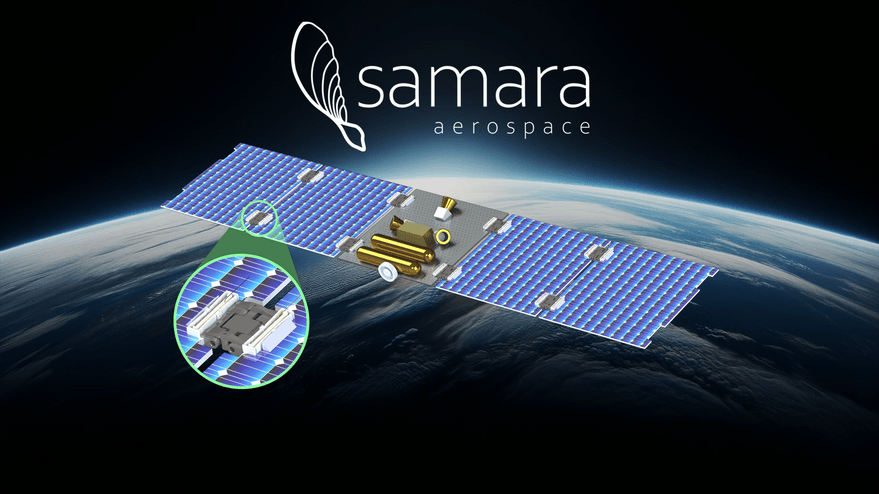PARIS – Startup Samara Aerospace won a SpaceWERX contract to develop a unique approach to satellite pointing.
Under a $1.25 million direct-to-phase two contract awarded in late August, Samara Aerospace will work with an Earth-imaging company to improve pointing accuracy for a 200- to 500-kilogram spacecraft.
“This is a huge win for us,” said Patrick Haddox, Samara Aerospace co-founder and CEO, told SpaceNews.
The innovation that prompted aerospace engineers Haddox and Vedant to found Samara Aerospace is called Multifunctional Structures for Attitude Control (MSAC). Vedant patented MSAC with James T. Allison, director of the Engineering System Design Laboratory at the University of Illinois, Urbana-Champaign. NASA’s Jet Propulsion Laboratory supported the technology development, said Vedant, who holds a PhD in aerospace engineering from the University of Illinois.
“MSAC allows us to put small piezoelectric actuators in the hinges of deployable solar panels,” Haddox told SpaceNews. “By actuating those very precisely and in rapid succession, we can induce little circular vibrations into the panels. When you vibrate a mass in a circle, you get the same effect as spinning a wheel in a circle.”
In fact, rather than inducing jitter, MSAC promises active noise cancellation, Haddox said.
“For any jitter detected at a sensitive payload, we do equal and opposite vibration with the solar panels to make the platform as steady as possible,” Haddox said. As a result, MSAC could improve pointing accuracy for Earth-observation and optical-communications satellites, he added.
“Traditionally, there’s been a fight between guidance, navigation and control engineers, who want satellite maneuverability, and power system engineers, who want large solar panels,” Vedant said. “We literally flip the trade. A larger solar panel comes with its own agility.”
Rapid Scaling
Samara Aerospace, established in 2022, completed the TechStars Los Angeles accelerator earlier this year. And in January, the National Science Foundation announced a $275,000 Small Business Technology Transfer award to Samara Aerospace and the University of Illinois Urbana-Champaign to produce a “flight capable” MSAC demonstrator.
“The result of this Phase 1 award will be a more reliable, efficient, and industry-ready MSAC system, as well as the opportunity for a $1.5M Phase 2 grant from NSF,” Samara Aerospace posted on LinkedIn. “This would allow Samara to launch our spacecraft into orbit, providing critical data and flight heritage.”
Samara Aerospace recently opened an office in San Francisco for its staff, which is expected to double from five to 10 employees by the end of the year.
“We’re scaling rapidly and getting started on creating our first hummingbird technology demonstrator,” Haddox said.
Hummingbird is the name of Samara’s thin spacecraft bus. Thanks to MSAC, “we’re able to build our satellites flat, basically on a plate,” Haddox said.



